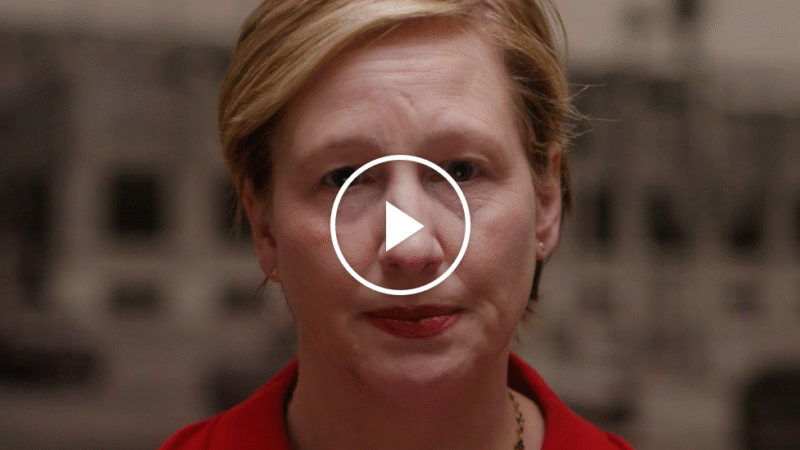Businesses worldwide brace for extra Trump tariffs on steel imports | Trump tariffs
Businesses around the world are steeling themselves for another round of Donald Trump’s tariffs, this time on goods ranging from bicycles to baking trays, as US industry embraces a call for more products to tax on import.
Small, medium and large American companies have asked the US Department of Commerce to add about 700 more items to an August list of 407 products already facing extra tariffs because of their steel content, which hit items such as Ikea tables with metal nuts and bolts and German combine harvesters.
The demands are ringing alarm bells across Europe where industry leaders are fearful of a rolling and growing list of “steel derivatives” that will now face levies because they contain the metal.
Manufacturers across Europe had reluctantly reconciled themselves to higher border taxes under the new trade frameworks struck with Trump. The UK’s deal included a baseline tariff on all goods of 10% and a 25% one for steel, while the EU agreed rates of 25% and 50% respectively.
However, exporters say the new derivative tariffs make a mockery of these agreements, because they mean many goods could soon face paying the higher rate on their steel content – on top of the baseline rate on the cost of the whole item.
The latest requests for tariffs on products with steel elements came before a 21 October deadline set by the US commerce department, the second consultation in three months.
Experts said companies asking for products to be added to the first list of steel derivative tariffs in August had a near 100% success rate, fuelling fears that most of the items now being proposed would make the latest list and hit exporters in December or January.
Among those submitting requests to the US commerce department are Guardian Bikes in Indiana, the tomato-canning company Red Gold, firms making steel wheels for trucks, a mattress spring company and manufacturers of 200 industrial machines used in everything from tunnelling, printing and flooring.
In an 11-page plea to the commerce secretary, Howard Lutnick, Guardian Bikes said the US bike industry “was lost” owing to 11m bicycles being imported in 2024.
Its letter blamed China for the “severe competition”, but if its request for inclusion in the second steel derivatives tariffs list was accepted, the import duty would apply globally and could affect companies such as Brompton in the UK or high performance bike brands such as Pinarello or Bianchi from Italy.
Red Gold, which cans tomatoes from 43 farms in Indiana, Ohio and Michigan, made a similar case. In its 12-page letter to Lutnick, it complained it was facing tariffs of 25% on tinplate steel imported from the UK and 50% on steel from elsewhere used in its own can production.
However, foreign businesses that sold finished tin-plated cans directly to the US paid “no comparable tariff” and were able to undercut domestic can producers, Red Gold pointed out, urging a steel derivative levy for the sector.
after newsletter promotion
Also requesting inclusion on the tariff list are two kitchen companies, American Pan and Chicago Metallic, which make baking pans for bread, buns, baguettes, muffins and croissants. They complained that China was “flooding the market” with low-cost commercial cookware, putting Chinese products at an “unfair” advantage.
George Riddell, a senior adviser at the advisory firm Flint Global, said the latest demands were confirming European fears that the US would now operate an “expansionist” policy for its tariff list.
He said: “The US have taken a very liberal, expansive approach to including new requests with almost zero requests for inclusion rejected last time round.”
Riddell added that the move spoke to “the uncertainty in the relationship with the UK and the EU despite having these deals”.
A decision on which products are included for the new batch of tariffs is expected to be made in December, 60 days after the deadline for requests.
Quick Guide
Contact Guardian Business about this story
Show

The best public interest journalism relies on first-hand accounts from people in the know.
If you have something to share on this subject you can contact the Business team confidentially using the following methods.
Secure Messaging in the Guardian app
The Guardian app has a tool to send tips about stories. Messages are end to end encrypted and concealed within the routine activity that every Guardian mobile app performs. This prevents an observer from knowing that you are communicating with us at all, let alone what is being said.
If you don’t already have the Guardian app, download it (iOS/Android) and go to the menu. Scroll down and click on Secure Messaging. When asked who you wish to contact please select the Guardian Business team.
SecureDrop, instant messengers, email, telephone and post
If you can safely use the tor network without being observed or monitored you can send messages and documents to the Guardian via our SecureDrop platform.
Finally, our guide at theguardian.com/tips lists several ways to contact us securely, and discusses the pros and cons of each.





